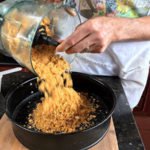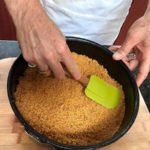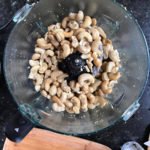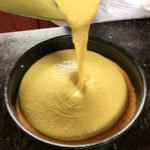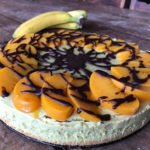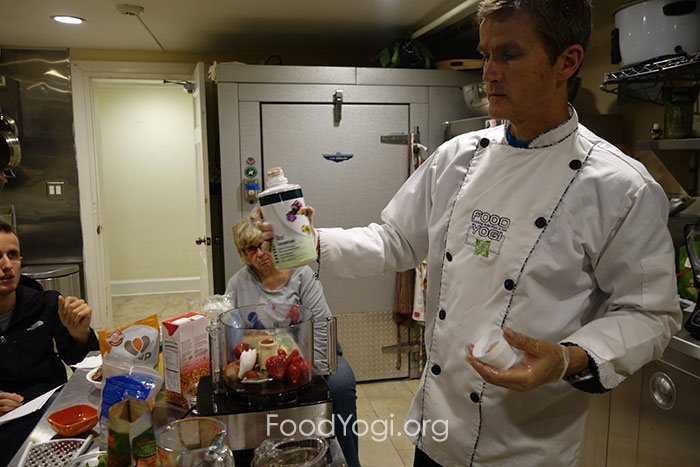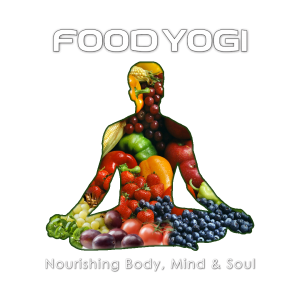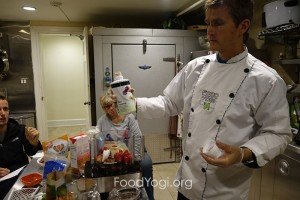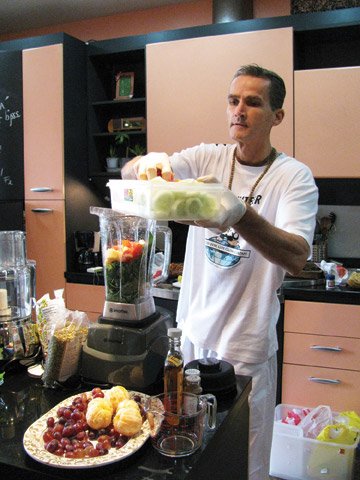Since I released my book, FOOD YOGA – Nourishing Body, Mind & Soul I have seen that other people are using the term food yogi or food yoga to promote their healthy lifestyle or cooking courses. However, there is a standard for what constitutes a food yogi. As a long time practitioner of bhakti yoga (32 years), director of the world’s largest vegan food relief and author of FOOD YOGA – Nourishing Body, Mind & Soul I carry the responsibility for the definition of food yoga and a food yogi. I want to make that clear here.
 What Food Yoga is
What Food Yoga is
ART: An individual’s creative expression of love and devotion using food as the medium;
SCIENCE: An appreciation for the beauty and interconnectedness of all things, coupled with an unceasing awareness of the Energetic Source from which all things emanate. A food yogi considers the physical laws of good food combining as well as the most subtle laws of intention while preparing the meal.
Food Yoga is a completely new approach to holistic living. Until now, philosophies on healthy living and nutrition have focused on the mechanics of health and happiness, exclusively focusing on the body alone. In doing so, these philosophies have promoted practices and diets that in one way or another have alienated vast numbers of people. As a result, despite volumes of literature and research there is no consensus on what diet or mode of living is best. What they have all failed to identify is one underlying truth that connects us all and from which all health systems can be reconciled and/or elevated to their ultimate stature. That truth is: our constitutional nature is spirit and we are all spiritually equal. Any healthy living program therefore needs to address the “nutritional” needs of the body, mind and spirit.
What a Food Yogi Is
 A responsible human that serves, consumes, and behaves in ways that respect all of creation and help maintain the delicate balance of nature.
A responsible human that serves, consumes, and behaves in ways that respect all of creation and help maintain the delicate balance of nature.- A person that is respectful of their own body, which they treat as a blessing or a “temple of God.”
- A person who lives their entire life in full awareness of their interdependence and interconnectedness of all things.
- A person who practices the culture of spiritual hospitality—a culture that is based on the principle of sama darshana or spiritual equality.
- A person who fully embraces a socially responsible and environmentally respectful lifestyle, including their choice of food, clothing, cosmetics, cleaning materials and habitat. All are chosen carefully so that the least amount of harm is inflicted upon the environment and other living things.
- A person that adheres to the principle of ahimsa (non-violence) in words, deeds and thoughts.
Food Yoga is Not
- A religion or a philosophy exclusively tied to a religious doctrine
- The monopoly of the Vaisnava tradition
- Vegetarianism devoid of spiritual significance or connected with an atheistic doctrine
- Veganism devoid of spiritual significance or connected with an atheistic doctrine
- A plant-based raw vegan diet devoid of spiritual significance or connected with an atheistic doctrine
A Food Yogi Only Uses
- Fresh fruits, vegetable, beans, pulses, nuts, seeds and grains in preparing meals
- Non-commercial dairy, if (AND ONLY) it has been offered by a family-owned and protected-cow that is never killed and whose calf is never separated
- As much local and organically-grown produce as available
A Food Yogi Does Not Use
- Meat, fish, or eggs
- Commercially produced dairy of any kind
- Onion or garlic
- Any products that contain animal-derived ingredients
- Any products that were tested on animals



